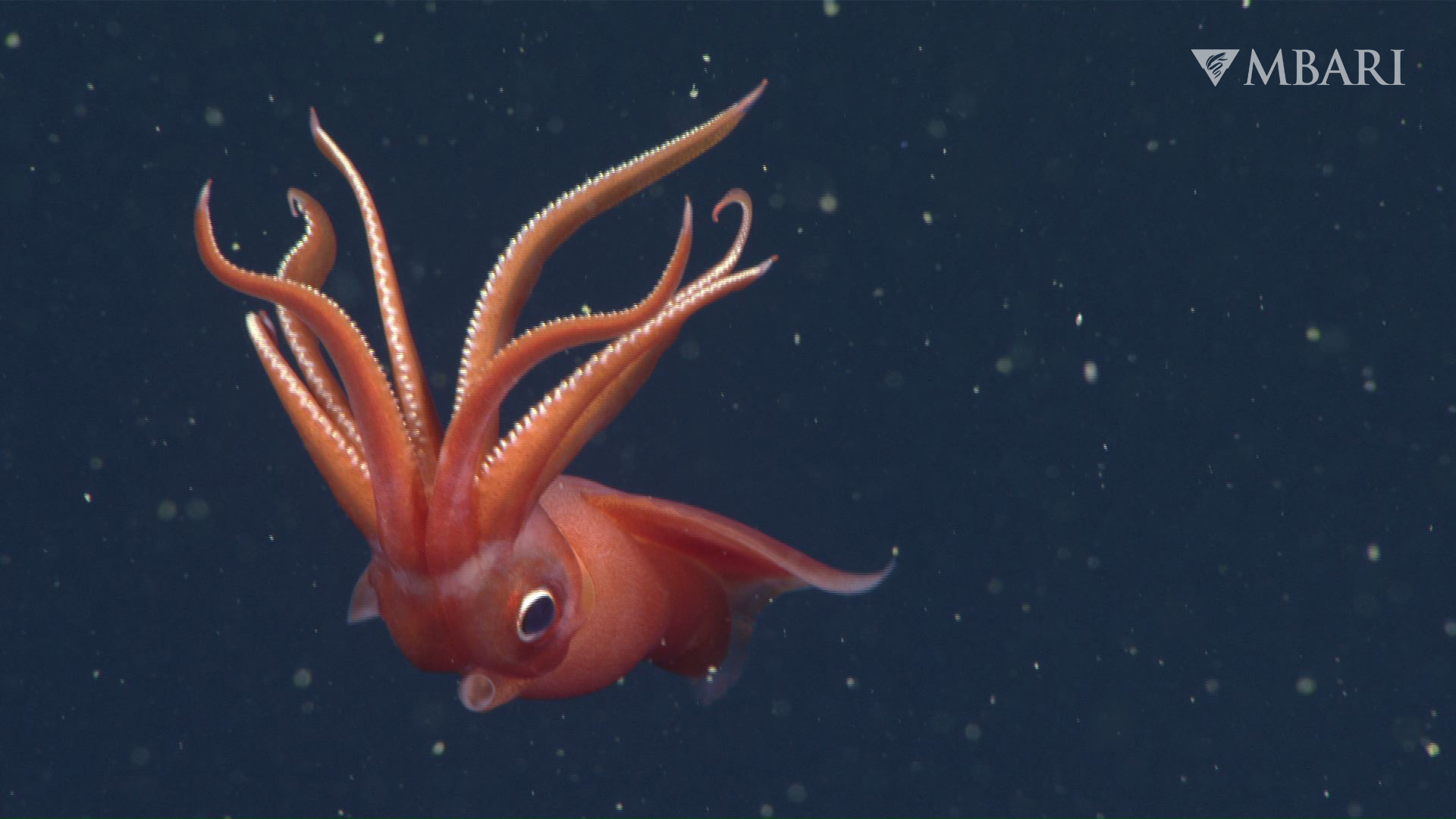Cephalopods are always full of surprises that push the boundaries of what we think we know about animal life – and few are more fascinating than the octopus squid (Octopoteuthis deletron), a deep-sea loner with removable limbs and a strong tendency towards same-sex behavior.
Most squids have a total of 10 appendages, consisting of eight arms and two long tentacles. However, as octopus squid mature, their two feeding tentacles are reabsorbed into their bodies, leaving them with just eight appendages.
Some individual octopus squid have even fewer arms, though. They are one of the only known squids to purposefully lose one of their arms as a way to escape a predator, a bit like how lizards can ditch their tail if it’s been grabbed by a bird. They’re also capable of regenerating the lost limb, a remarkable trait that only a few animal groups possess.
A 2012 study observed 84 individual O. deletron using remotely operated vehicles (ROVs) and found that 17 (27 percent) of them had at least one partially missing arm. The researchers even directly witnessed this behavior, called autotomy, when the squids made contact with their ROV and shed their limbs in a panic.

An octopus squid (Octopoteuthis deletron) observed by MBARI’s remotely operated vehicle (ROV) Doc Ricketts in Monterey Canyon at a depth of approximately 540 meters (1,772 feet).
Image courtesy of MBARI; © 2019 MBARI
They’re typically seen in the Northeastern Pacific Ocean off the coast of Washington to Baja California. Per the Monterey Bay Aquarium Research Institute (MBARI), the species lives at depths of up to 1,000 meters (3,300 feet) in the twilight (mesopelagic) zone during the daytime. When the sun goes down, they rise to the surface at depths of 500 meters (1,600 feet) to feed.
Like many deep-sea inhabitants, there’s plenty we don’t know about octopus squid, such as their diet. It’s evident, however, that the species is preyed upon by a host of different animals, including whales, sharks, and even seabirds.
To avoid becoming someone else’s dinner, O. deletron can change color, a behavior that’s common in cephalopods that live in shallow waters, but not so typical in deep-dwelling species.
They achieve this through specialized cells in their skin called chromatophores, which contain sacs of pigment that can be expanded or contracted by the action of surrounding muscle cells, allowing rapid changes in color and pattern. Cephalopods can also shift their appearance using cells called iridophores, which reflect light to produce iridescent colors through structural interference, as well as leucophores, which scatter light and increase their brightness.
Another trick up their sleeve is a light-producing organ that sits at the end of each arm, used to bedazzle prey, illuminate their surroundings, or perhaps woo potential mates.
Speaking of mating, their solitary lives lead them to develop some fairly fascinating sexual behavior. O. deletron is particularly unique because it exhibits same-sex behavior as commonly as opposite-sex sexual behavior, according to a 2011 study.
To reproduce, the squid uses a modified arm to effectively shoot a packet of sperm into the flesh of the partner, where it remains until the female can fertilize its eggs. However, it appears that the octopus squid is indiscriminate with who it attempts to inseminate and will often fire a sperm packet at fellow males. In the lonely depths of the ocean, you can’t miss your shot.
“This is a solitary species that is not very abundant; it lives in deep, dark waters where opportunities for reproduction are few and far between. In response to that challenge, this reproductive strategy ensures that no opportunity for successful mating is lost. It’s kind of like buying a Lotto ticket, except the odds are much better,” Bruce Robison, a co-author of the study and deep-sea ecologist at MBARI, said in a statement.
Source Link: Octopus Squid: A Rule-Breaking Cephalopod With A Taste For Same-Sex Behavior